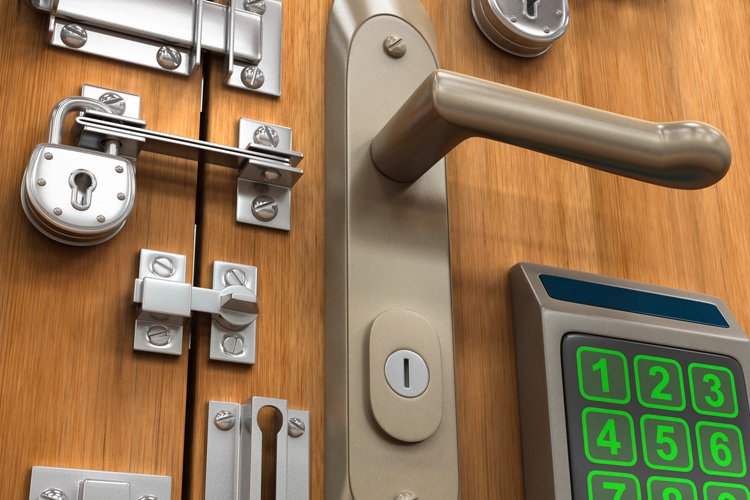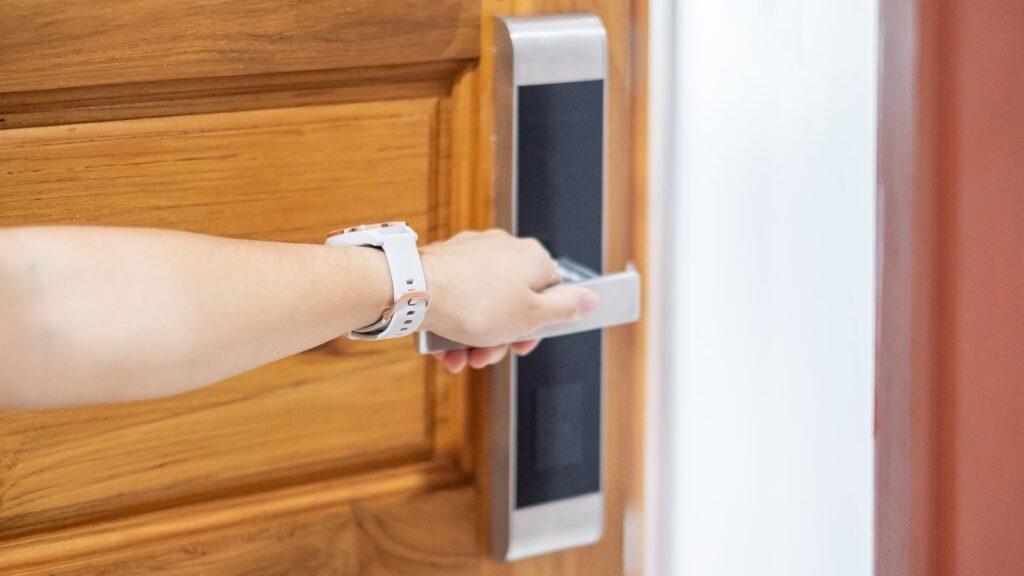
When it comes to safeguarding your home, one of the most crucial elements is choosing the right lock door. After all, your front door serves as the gateway to your castle – it’s what separates you from potential intruders and provides peace of mind for you and your loved ones. But with countless options available in today’s market, finding the perfect lock door can feel overwhelming. Fear not! In this comprehensive guide, we will walk you through five essential tips that will help you make an informed decision when selecting a lock door for your home.
Different Types of Door Locks
There are various types of door locks available in the market today, each offering a different level of security. Understanding these different types can help you choose the right lock door for your home.
1. Deadbolts: Deadbolts are one of the most common and secure types of door locks. They have a solid metal bolt that extends into the door frame when locked, making it difficult to force open.
2. Knob Locks: Knob locks are commonly found on interior doors but should not be used as standalone security measures for exterior doors. They can easily be forced open with enough pressure.
3. Lever Handle Locks: Lever handle locks are often used in commercial buildings, but they can also be installed in residential homes. They provide ease of use and accessibility for those with limited hand strength or mobility.
4. Keyless Entry Systems: Keyless entry systems use electronic keypads or smart technology to unlock doors without traditional keys. These systems offer convenience and added security features like alarm integration and remote access control.
5. Smart Locks: Smart locks connect to your smartphone or home automation system, allowing you to control access remotely and receive notifications about who is entering or leaving your home.
By understanding the different types of door locks available, you can make an informed decision based on your specific security needs and preferences
Factors to Consider Before Choosing a Lock Door

When it comes to securing your home, choosing the right lock door is essential. With so many options available in the market, it can be overwhelming to make a decision. That’s why considering certain factors before making your choice is crucial.
First and foremost, assess your home’s security needs. Do you live in an area with high crime rates? Are there any vulnerable entry points that need extra protection? Understanding these factors will help you determine the level of security needed for each door in your house.
Next, look for high-quality materials. A lock door made from sturdy materials like solid steel or brass will ensure durability and resistance against break-ins. When it comes to home security, don’t skimp on quality.
Consider the type of key or keyless entry system that suits your lifestyle and preferences. Traditional keys are reliable but can be easily lost or duplicated. On the other hand, keyless entry systems offer convenience but may require batteries and have potential vulnerabilities.
Tip #1: Assess Your Home’s Security Needs
When it comes to choosing the right lock door for your home, one of the first things you need to consider is your home’s security needs. Assessing your specific requirements will help ensure that you select a lock that provides adequate protection and peace of mind.
Start by evaluating the overall security level of your neighborhood. Are break-ins common? Is Does your neighborhood have a high crime rate? Understanding these factors will give you a better idea of the type of lock door that will be most effective in deterring potential intruders.
Next, take a closer look at your property itself. How many entry points does it have? Do you have windows or sliding glass doors that also need to be secured? Consider all possible access points and prioritize them based on their vulnerability.
Tip #2: Look for High-Quality Materials
When it comes to choosing the right lock door for your home, one important tip to keep in mind is to look for high-quality materials. The material used in a lock can greatly affect its durability and resistance against forced entry.
One of the most common materials used in locks is brass. Brass locks are known for their strength and corrosion resistance, making them a popular choice among home owners. Another option to consider is stainless steel, which is highly durable and resistant to rust and corrosion.
Tip #3: Consider the Type of Key or Keyless Entry System
When it comes to choosing the right lock door for your home, one important factor to consider is whether you prefer a traditional key or a modern keyless entry system. Both options have their advantages and it ultimately comes down to personal preference and convenience.
Traditional keys have been around for centuries and offer a sense of familiarity and security. However, they can be easily lost or misplaced, which could potentially compromise the safety of your home. On the other hand, keyless entry systems provide convenience and peace of mind as they eliminate the need for physical keys altogether.
Keyless entry systems typically use electronic mechanisms such as keypad codes, fingerprint scanners, or even smartphone apps to unlock your door. This means no more fumbling through pockets or purses searching for keys! Additionally, keyless entry systems often come with added features like remote access control and customizable access codes – perfect if you have multiple people coming in and out of your home.
Tip #4: Research Popular Brands and Ratings
When it comes to choosing the right lock door for your home, one important tip is to research popular brands and ratings. Doing some homework on different brands can give you valuable insights into their reputation and the quality of their products.
Start by looking up reviews and ratings online. Check out websites or forums where homeowners discuss their experiences with different lock door brands. Look for feedback on factors such as durability, ease of installation, and overall satisfaction.
Another valuable resource is consumer reports or independent testing organizations that evaluate various lock door options. These organizations conduct thorough tests to determine how well a particular brand performs in terms of security, reliability, and resistance against break-ins.
Tip #5: Determine the Level of Security Needed for Each Door in Your
When it comes to securing your home, not all doors are created equal. Different entry points have varying levels of vulnerability, so it’s essential to assess the security needs for each door individually.
Start by considering the location and accessibility of each entrance. Is it a front door facing a busy street or a back door hidden from view? Understanding these factors will help you determine the level of security needed.
Next, think about the function of each door. Is it an exterior entrance that requires maximum protection? Or is it an interior door that mainly serves as a barrier between rooms? The purpose of each doorway will influence your choice in lock type and strength.
Another important consideration is the material and construction quality of your doors. Solid wood or metal doors provide better resistance against forced entry compared to hollow-core or glass-paneled ones. Match the lock’s durability with the sturdiness of your doors for optimal security.
Conclusion
Choosing the right lock door is crucial for ensuring the security and safety of your home. With various types of door locks available in the market, it can be overwhelming to make a decision. However, by considering certain factors and following these essential tips, you can make an informed choice.
Assessing your home’s security needs is the first step towards selecting the right lock door. Evaluate potential vulnerabilities and determine which areas require enhanced protection. This will help you prioritize where to invest in high-security locks.
When it comes to choosing a lock door, quality materials are key. Look for locks made from durable materials such as solid brass or stainless steel that can withstand forced entry attempts and resist corrosion over time.